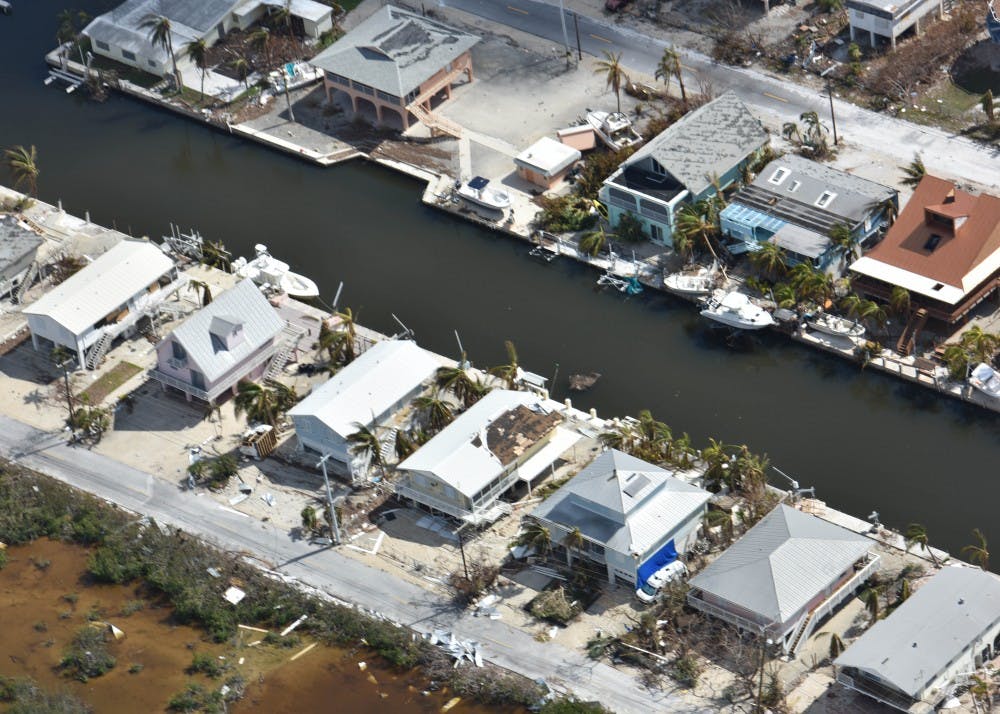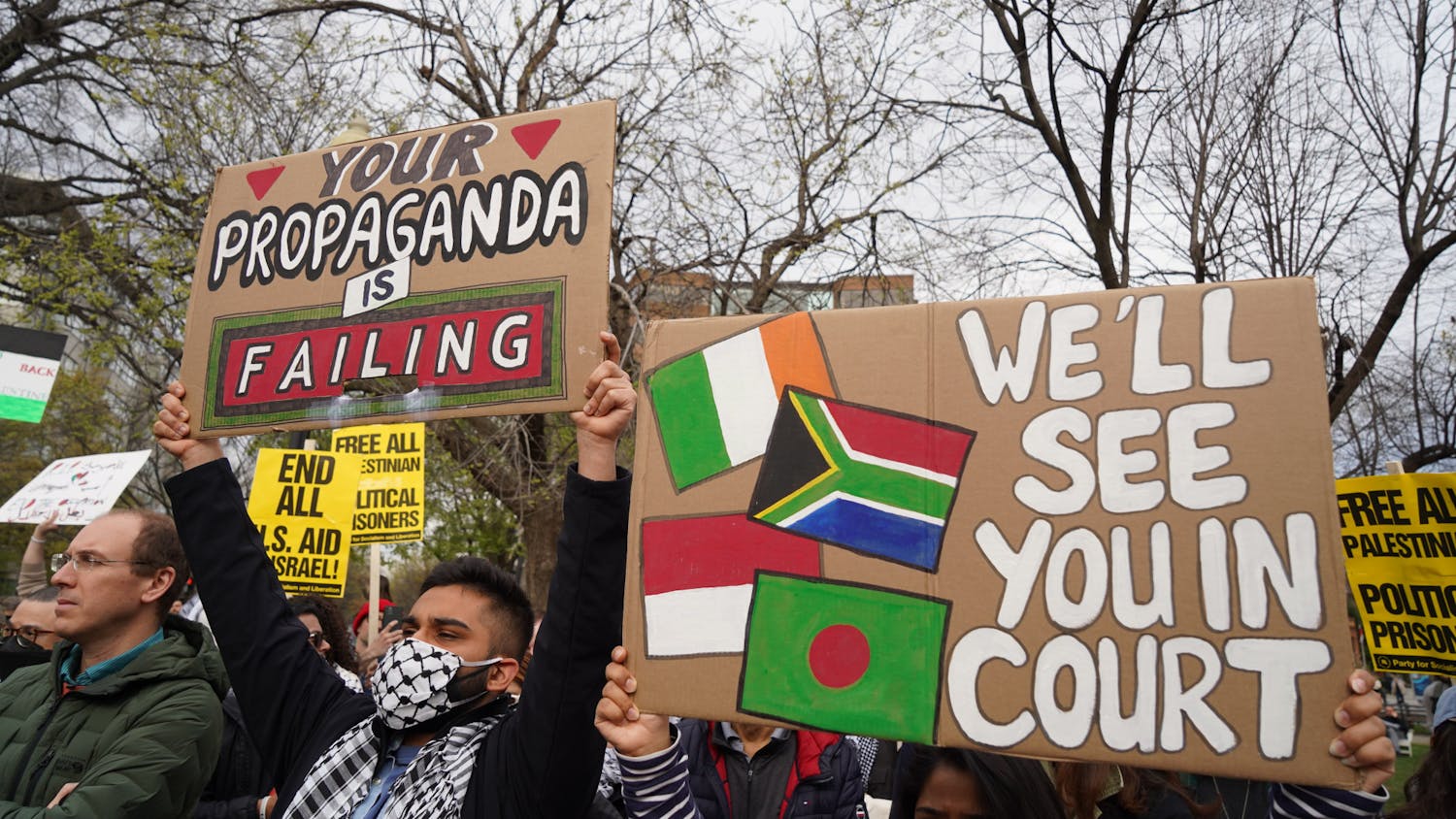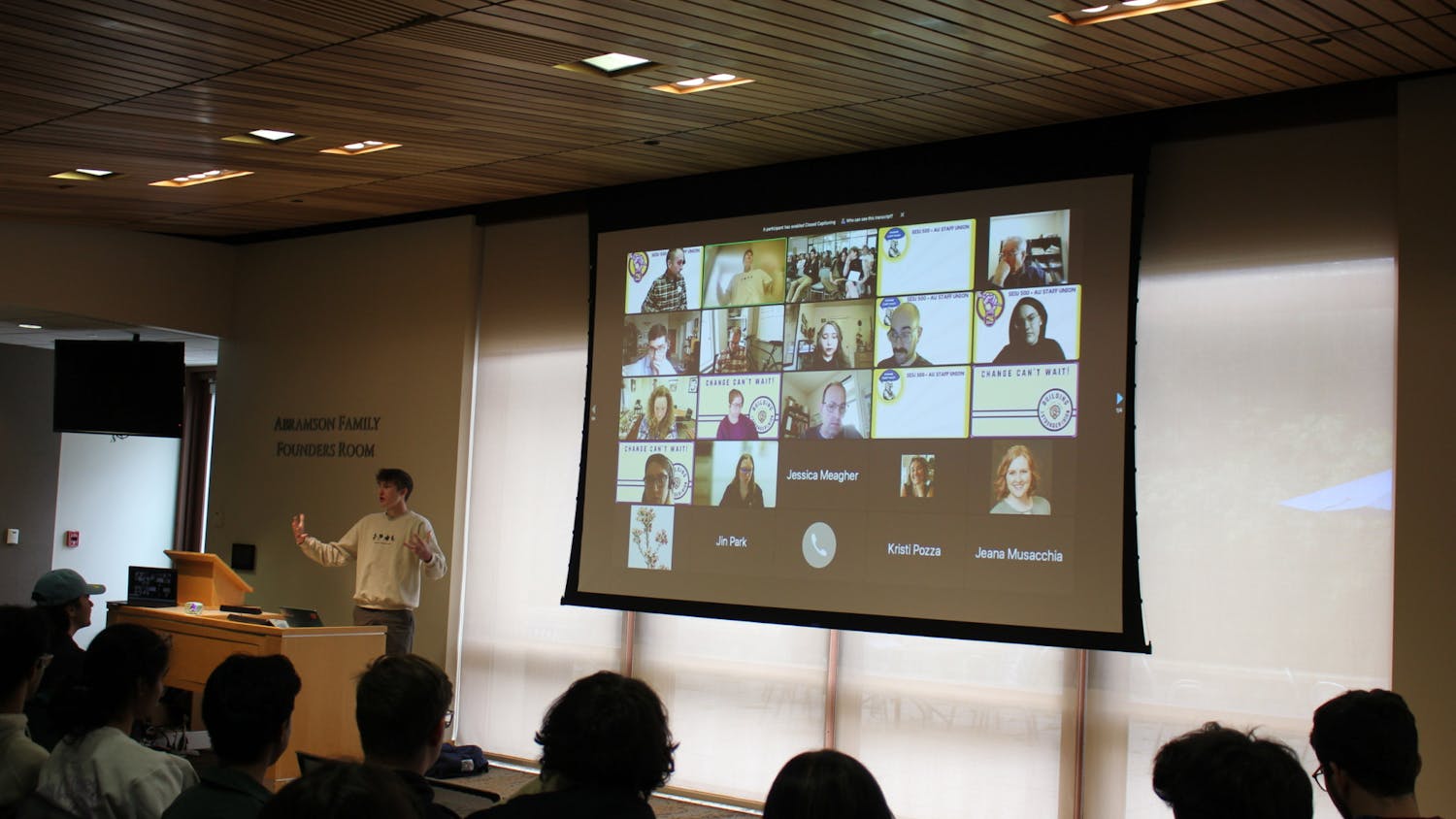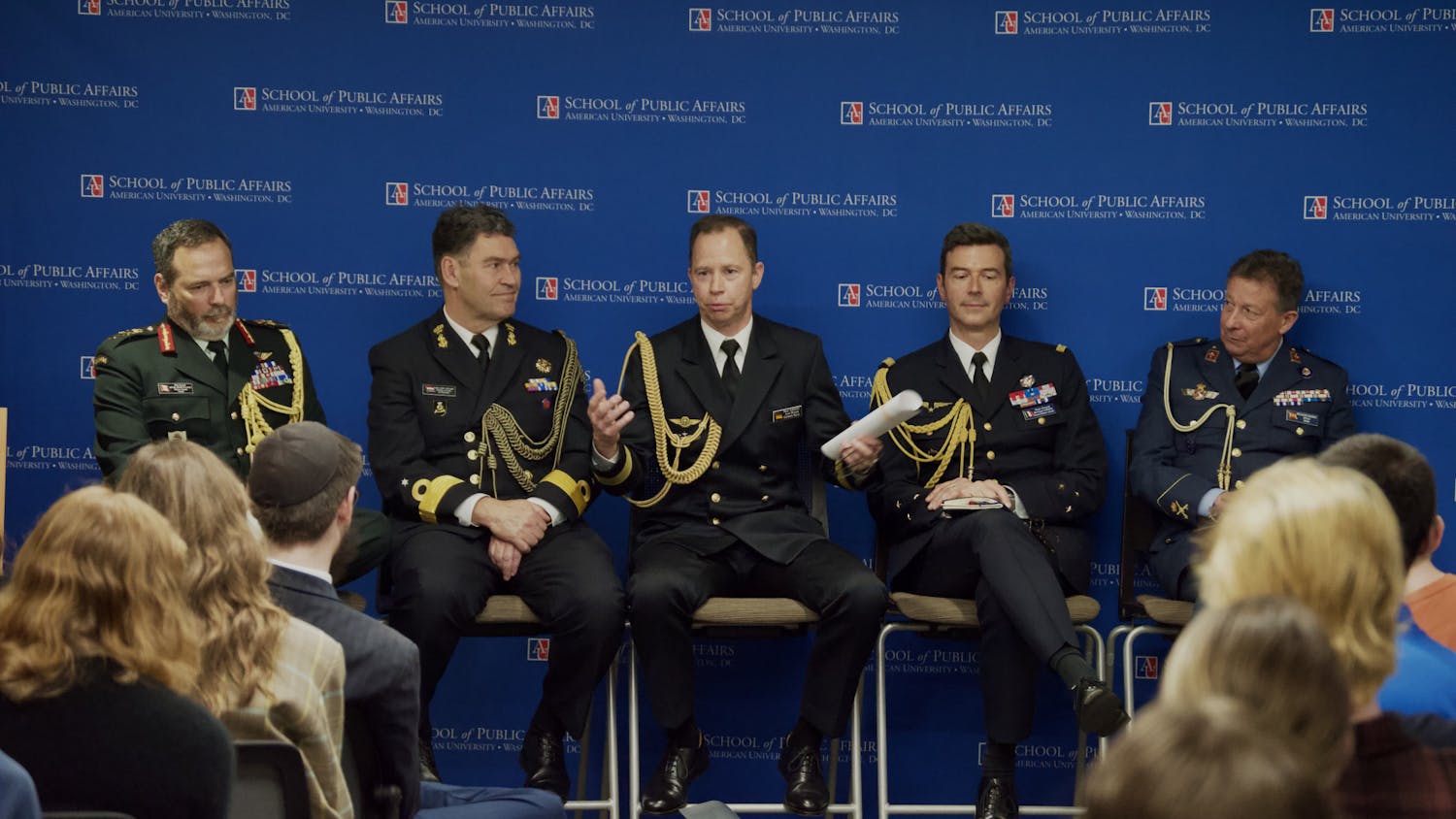The impact of Hurricane Irma is being felt by AU students hundreds of miles away from the hurricane’s path. Several students with families and friends in Florida were impacted by the Category 5 storm, including junior Felipe Herrera, whose family lives close to Cutler Bay in south Miami.
Herrera said his family did a lot to get prepared and saw long lines and empty shelves at local supermarkets as residents prepared for the storm.
“My parents were telling me there was this climate of neighbors helping neighbors to help set things up and people helping each other in the community to get prepared, especially as they updated it to a category 5 and it got scary,” Herrera said.
Herrera’s parents drove up to D.C. as Hurricane Irma moved closer to their city. They were hesitant to leave Florida at first, as the storm tracking previously issued warnings for storms that usually would curve away from the city.
What made his parents evacuate, Herrera said, were reports stating that the storm would be catastrophic, and Florida Governor Rick Scott declaring a state of emergency.
“They put up all the shutters and the fridge was full, just in case they decided to stay,” Herrera said. “Everything was locked up and brought inside, and pets were brought up with them to D.C.”
Growing up, Herrera only experienced smaller storms in his hometown. He had seen trees and power lines that had fallen, but nothing was close to the destruction that Hurricane Irma caused in the Caribbean.
“My neighborhood was lucky, so we did have all the power lines underground so we didn’t lose power,” Herrera said. “But, there are neighborhoods in Miami right now like Coral Gables, that still don’t have power.”
Reagan Edgren, a freshman from Parkland in the Fort Lauderdale area, said Irma “seemed kind of underwhelming” after her family had prepared for a stronger storm.
“There was still a lot of damage in trees falling down and such, but compared to the disaster that a Category 5 [hurricane] would have brought it didn't seem that bad,” Edgren said.
While she did not have many friends or family affected, Edgren still noticed a few trees that had fallen down around her house, with no other significant damage. Her family did not evacuate, and she was at AU during the storm.
“Everyone put up hurricane shutters and stocked up on things like food, water and paper products,” Edgren said. “The line for gas went down the street at least half a mile or so.”
Claire Churchill, a junior from Miami, said many people who were able to evacuate left quickly, but those who were not able to leave had to stay behind and risk their lives.
“The airlines jacked up the prices so the people who couldn’t afford the prices had to stay,” Churchill said.
Her parents flew to New York, while her father and grandparents stayed behind and were safe in their home, enduring some flooding. After Irma hit, Churchill tried to appeal the Office of Financial Aid to increase her aid package, but said she has not received an aid increase.
“I recently wrote an appeal letter to appeal for my money, because this institution gave me zero,” Churchill said. “I have over $80,000 in debt and my family is struggling paying for our home bills.”
Fanta Aw, the Vice President of Campus Life, sent an email to the AU community on Sept. 10, with information on resources for dealing with the aftermath of Hurricane Irma and other recent natural disasters.





